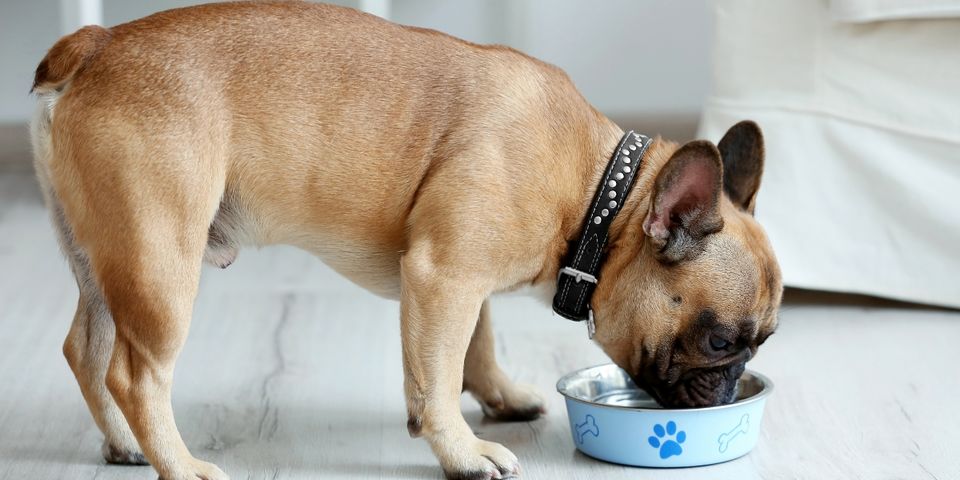
Obesity in dogs can lead to health problems, such as arthritis, inflammation, and coronary artery disease. While it’s okay to feed dogs treats occasionally, their veterinarian may recommend monitoring their eating and exercise habits to combat obesity. Here’s more information on how to help your dog lose weight.
4 Ways to Help Your Dog Lose Weight
1. Review Food Choices
Dogs need a high protein, low carbohydrate diet to maintain a healthy weight. Many kibble brands are made with carbohydrates to bind the other ingredients. While carbohydrates pack valuable nutrients, an excess can make dogs gain weight.
Mixing in high-protein canned and raw food selections with kibble can offer nutritionally balanced, filling meals. Canned and raw food have more moisture, making your pet think they’re eating more. However, consult your veterinarian before switching brands or making dietary changes.
2. Feed Several Small Meals

Try feeding your pup smaller portions spread throughout the day, especially if you’re at home. This can decrease potential begging when you cut back on serving portions, keep their insulin levels stable, and lower spikes in appetite.
If you’re gone on weekdays, feed smaller meals in the morning and at night rather than one large meal that remains in the bowl. Be consistent so your pet gets used to the routine and serving sizes.
3. Increase Exercise
Depending on the size and breed, dogs may need anywhere from 30 minutes to two hours of exercise per day. From playing fetch and long walks around the park to swimming, there are plenty of activities to help your dog remain healthy and fit. When you’re first starting an increased exercise regimen, don’t overexert your pet and watch for cues that they need water or rest.
4. Evaluate Health
If you have your dog on a strict diet and exercise regimen, but they still aren’t losing weight, schedule an appointment with their veterinarian. They can rule out medical problems that may be causing weight gain or fatigue, such as hypothyroidism or Cushing’s Syndrome, by taking blood samples. Proper diagnosis and treatment can make all the difference.
When you need a dependable veterinarian, turn to the trusted team at Troy & Wentzville Veterinary Clinic in Eastern Missouri. With over six decades of service to the surrounding areas, this animal clinic provides top-rated pet services. Call (636) 528-4534 to speak to the staff at the Troy location or (636) 327-6488 to talk to the staff at the Wentzville location. You can also visit their website and Facebook for more information and updates.
About the Business
Have a question? Ask the experts!
Send your question

